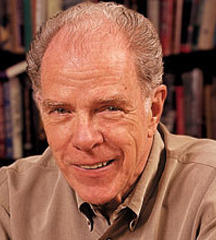Michel de Montaigne Quotes - Page 37

I may indeed very well happen to contradict myself; but truth, as Demades said, I do not contradict.
When we see a man with bad shoes, we say it is no wonder, if he is a shoemaker.
"Essays", Book I, Chapter XXIV, as quoted in Hoyt's New Cyclopedia Of Practical Quotations, p. 705-06, 1922.
Michel de Montaigne (2013). “Michel de Montaigne: Selected Essays”, p.3, Courier Corporation
'Essais' (1580) bk. 1, ch. 14 [References are to M. Rat's edition of the 'Essais' (1958) which, in accordance with the Strowski and Gebelin text (1906-33), conflates the 1580 edition of books 1 and 2, the revised and enlarged 1588 edition of all three books, and later manuscript additions published posthumously]
What of a truth that is bounded by these mountains and is falsehood to the world that lives beyond?
Michel de Montaigne (1973). “Selections from the Essays”, Harlan Davidson
Michel de Montaigne (1964). “Selected essays of Montaigne: in the translation of John Florio”
"Essais". Book by Michel de Montaigne, Book III, ch. 2, "Of Repentance", c. 1592.
Michel de Montaigne (1958). “Essays”
There is little less trouble in governing a private family than a whole kingdom.
Michel de Montaigne, George Savile Marquis of Halifax (1743). “Montaigne's Essays in Three Books: With Notes and Quotations. And an Account of the Author's Life. With a Short Character of the Author and Translator”, p.265
Michel de Montaigne (2016). “Delphi Complete Works of Michel de Montaigne (Illustrated)”, p.698, Delphi Classics
Essais bk. 1, ch. 1 (1580)
Those that will combat use and custom by the strict rules of grammar do but jest
Michel de Montaigne, John Florio, Michael Innes (1928). “Montaigne's essays”
The relish of good and evil depends in a great measure upon the opinion we have of them.
Michel de Montaigne (1811). “The Essays of Michael de Montaigne”, p.308
Michel de Montaigne (1991). “The essays of Michel de Montaigne”, Lane, Allen
I see this evident, that we willingly accord to piety only the services that flatter our passions.
Michel de Montaigne (1958). “Complete Essays”, p.323, Stanford University Press
"Complete Works of Michel de Montaigne".
Michel de Montaigne (1991). “The essays of Michel de Montaigne”, Lane, Allen
Michel de Montaigne (1976). “The Complete Essays of Montaigne”
Michel de Montaigne (1850). “Works, Comprising His Essays, Letters, and Journey Through Germany and Italy: With Notes from All the Commentators, Biographical and Bibliographical Notices &c., &c”, p.217






